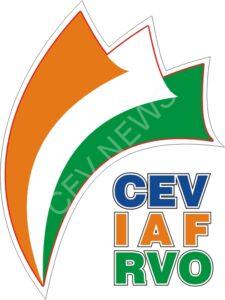Rustam C Cooper Vs Union Bank of India AIR 1970 SC 564
In Nut Shell
The Supreme Court upheld the right of Union and State Governments to nationalise banks, or, for that matter any industry
A Bank Nationalisation case – A turning point to interpretation of Fundamental Rights
Brief of Case
1) Equivalent citation – AIR 1970 SC 564, 1970 SCR (3) 530
2) Petitioner – Rustom Cavasjee Cooper / R C Cooper
3) Respondent – Union Bank of India
4) Date of judgement – 10/02/1970
5) Bench – Shah J C + 10 others
Background of Case
The preamble and various constitutional provisions of the Constitution of India obligate the date to build an egalitarian society for the people of India
After independence of the nation transport undertakings, electricity, insurance sector, oil refineries etc were nationalized in order to achieve the goal of Socialism
Necessities of Bank Nationalization
1) After Independence the distribution of credit in rural area was at a great low
2) This was because of the inaccessibility of banks and other financial institutions in the rural area
3) Therefore in order to target the rural area, the government schemed a plan to target the needy sector
4) this solution they devised was Nationalisation
Initial proposal for Bank Nationalisation
1) R K Shanmugham Chetty, the first finance minister wanted to nationalise the Imperial Bank
2) Suggestion was dropped at the behest of Sardar Patel
3) in 1955, the Imperial Bank was taken over under the state bank of India act, and four year later, seven of its subsidiaries were also taken over
4) with this partial nationalization, one third of commercial banking in the country had already come under the state control
5) The RBI took a pro-active role in regulating the banking sector and reduced the number of commercial banking institutions from 566 in 1951 to 89 in 1969
6) The Indira Gandhi government in 1969 at the instance of the then acting president M Hidayatullah promulgated the banking companies (Acquisition & Transfer of Undertaking) ordinance, 1969 nationalizing the 14 banks
7) these 14 banks were chosen on the basis that they had deposits exceeding Rs 50 Crores
8) the ordinance was promulgated just two days before the session of parliament
9) The ordinance wef 19/07/1969 brought more than 75% banking sector under state control along with its assets, liabilities, entire paid up capital
Opposition to Nationalization
1) some leaders of the opinion that the amount of compensation (Rs 85 core) could be used to stimulate economy instead of bank nationalization
2) Moraraji Desai’s view was to control banks and Chanel the credit to the social sector by amending the banking laws
3) on 18/07/1969, Moraraji Desai voluntarily resigned from the post of deputy PM of the country
The provision for compensation
1) compensation amount could be fixed by agreement
2) where no such agreement could be reached, the CG had to refer the matter to a Tribunal
3) the compensation so determined was to be given not in cash but in marketable CG securities payable after 10 years
4) This was the most unfair provision
Filing of Petition by R C Cooper
1) less than 48 hours after the ordinance was promulgated, R C Cooper, filed a petition in the Supreme Court, through Advocate Nani A Palkhiwala
2) R C Cooper was then a director of Central Bank of India
3) He held shares in this bank, Bank of India Ltd and Bank of Baroda Ltd
4) this writ petition was filed on 21/07/1969
5) Interim application was heard on 22/07/1969
6) An interim order restraining the removal of the chairman of the banks were granted
Legal issues of writ petition
1) whether a shareholder can file a petition for remedy against violation of this fundamental rights when the company in which the shares are held is taken over?
2) whether the ordinance was properly promulgated?
3) Whether the Parliamentary act was within Parliamentary Competence?
4) Whether the impugned parliamentary act was violative of Article 19(1)(f) & 31(2) of constitution of India?
5) whether the method of ascertaining compensation was valid?

Petitioner’s Arguments
1) writ petition is maintainable because the petitioner has filed it for his fundamental rights and not that of company
2) company not being citizen of India, cannot claim those protection
3) Since in just two days the parliament was coming in monsoon the president an ordinance which is in direct contravention of condition precedent for promulgation of ordinance
4) therefore the President’s promulgation of ordinance is invalid and that the SC had power to annual an invalid ordinance
5) the parliament did not possess the required valid competence to initiate the acquisition process
6) The impugned act of 1969 is violation of Fundamental Rights mentioned in article 19(1)(f) and article 31
7) violation of the said provision will be unconstitutional and the courts are bound to strike it down
8) procedure of compensation to be given to the shareholders is draconian in its entirely
9) the said provision is too much irrational and vague
10) no valid law can make a person realise the fruits of agreement after 10 years
11) such illogical and illegal condition must be struck down
Respondent’s Arguments
1) the writ petition is not maintainable as petitioner is seeking the protection of fundamental rights of company which is not citizen as per Indian Citizenship Act 1955
2) the rights mentioned under article 19 are only available to the citizens of nation
3) company is only a juristic person and not a citizen
4) the president’s power to promulgate an ordinance u/a 123 is a subjective power
5) president cannot be asked to adduce his reasons before the courts as to why the ordinance was promulgated
6) the courts must see the socialist obligations upon the state to make an egalitarian society in which there is no sort of inequality
7) the act is not violate of article 19(1)(f) since it falls within the provisions of article 31
8) court held that each Fundamental Right is exclusive of one another and distinct
Judgement
The court delivered a landmark judgement on 02/02/1970 and speaking 10:1 majority held that the shareholder or director cannot move to the courts for the protection of infringement of fundamental rights of the company unless it is proved that by the impugned action his rights are also violated
The majority opinion was written by Justice Shah for himself and on behalf of 9 others
Justice A N Ray wrote the dissenting opinion

Major findings of the majority bench
1) the apex court overruled the 20 years law laid down by K Gopalan rejecting the mutual exclusivity theory
2) the court by holding this laid down the effect test and overruled the object test
3) since the ordinance was already replaced by the parliament therefore the court held that deciding the validity of the said impugned ordinance is fruitless
4) this discussion is relevant for academic purpose only
5) the court rejected the argument on legislative competence to acquire banking companies
6) the power to acquire property was held to be an independent power of parliament and it required no separate legislation under list II or III
7) the act is not violation of the freedom to carry trade and business
Critical Analysis
1) the power of Nationalisation was upheld by Supreme Court
2) the court decided not to interfere in the government’s objective of socialism and provided them enough levy to achieve them
3) interpretation of fundamental rights is turning point which was later applied in subsequent SC decisions
4) government had every right to pick a socialist path
5) this was a huge incentive in the favor of citizens of the nation
Aftermath of RC Cooper
Parliament amended the constitution by enacting the 25th constitutional (Amendment) act 1971
25th Amendment
1) the word amount was placed instead of compensation in the provision
2) the parliament in order to clarify their stance that they are not bound to adequately compensate the landowners amended Article 31(2) in case their property is acquired by the state
3) Article 19(1)(f) was de linked from Article 31(2)
4) Article 31C,a new provision was added to the constitution to remove all difficulties
5) Articles 14,19 & 31 are not to be applied to any law enacted under the fulfilment of objectives laid down under article 39(b) & 39(c)
6) any law to give effect to article 39(b) & 39(c) will be immunised from courts intervention
7) the word amount can be interpreted as any figure of money and that is not necessarily an adequate, equitable amount
Re-enactment of the banks nationalisation act
1) After this decision, the parliament re-enacted the Bank Nationalisation Act and an additional sum of Rs 58 crores was paid to 14 banks
The judgement is landmark in its every scene.
Compiled by
Avinash Kulkarni

Chartered Engineer
Govt Regd Valuer
IBBI Regd Valuer
You can Join telegram group of CEV INDIA group for more details and information
https://t.me/joinchat/FOGm2kcLrfYoZF27bEax1Q


